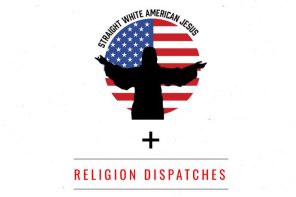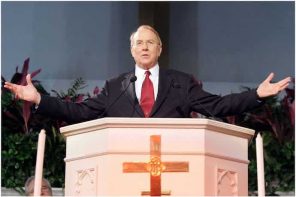Thousands of elementary and middle schools are celebrating “No Name Calling Week.” The week is inspired by James Howe’s novel The Misfits that tells the story of a group of seventh grade friends who institute “No Name Calling Day” to bring attention to the harmful words directed at students because of their weight, height (or lack of), as well as sexual orientation.
Who in the world would object to the idea of a week to refrain from taunting or calling someone else offensive names? Why, Focus on the Family, of course:
But what may seem like a good idea is nothing more than a plug for the goals of the Gay, Lesbian and Straight Education Network (GLSEN).
“GLSEN claims this event is about eliminating bullying and name-calling, but if you take a closer look at the curriculum and lesson plans, it’s clear there is an adult agenda behind this,” said Candi Cushman, education analyst at Focus on the Family Action.
For example, one lesson plan for grades 5-9 offers discussion questions such as, “What does it mean to be ‘in the closet?’ ” and “What can you do to educate yourself about gay and lesbian issues …?”
“All students should enjoy a safe environment,” Cushman said, “but at the same time, schools are not required to encourage particular sexual behavior or certain views on sexuality.”
“No Name Calling” certainly hopes to educate people, but nowhere does it demand that people either encourage or accept homosexuality. Instead, they’re simply asking people to refrain from hurling hurtful names at those with whom they may disagree.
As someone who was called “dyke” and “fag” and witnessed friends being called such names as “man-woman,” I can tell you the slings and arrows of children’s name-calling cuts deep and leaves permanent scars. I did my best to grow a thick skin and often used the old school-yard retort, “I’m rubber. You’re glue. Whatever you say bounces off me and sticks to you.” But, more often than not, those words didn’t bounce. Instead, they hit their mark and left deep gashes in my self-esteem.
Certainly, the folks at FotF are not in favor of other children calling their little darlings bad names because of their appearance or personalities. But groups like FotF are ardent in their opposition to events like this—as well as to hate crime laws that limit their ability to call other people names like “sinner,” or use hurtful words to assure others that God surely hates them for some reason or another. Such laws, and such weeks of respite from name-calling are trampling their first amendment rights to be a bully in the name of God. They are truly afraid that events like this or laws that prevent bullying or physical harm based on hatred or discomfort about another person will somehow hamper their crusade to convert all the infidels to Christ.
For this event to focus especially on the words that are most often hurled like weapons at gays and lesbians is the final insult. They’d support this kind of week if they could still call a “fag” a “fag.” To them, that’s not an insult—it’s a tool to shame a miserable sinner into conversion and they won’t have it being yanked from their “Black and Decker Save-a-Queer-for-Christ” tool kit.
Studies show, however, that such shameful bullying has lasting effects for its targets.
The study, “Predicting Psychosocial Consequences of Homophobic Victimization in Middle School Students,” found that anti-gay name-calling significantly impacts not only gay students, but heterosexual students too. Also known as verbal bullying, such name-calling results in higher levels of anxiety, depression and personal distress, as well as a lowered sense of belonging. […] Verbal bullying is the easiest kind of bullying to inflict because it is quick, to the point and can occur in the least amount of time. Further, its effects are often more devastating in some ways than physical bullying because there are no visible scars.
Believe me, there are plenty of scarred gay and lesbian people walking this earth—and groups like FoF want to keep it that way. Apparently people with low self-esteem are more susceptible to being sucked into a brand of religion that offers easy answers to life’s hard questions.
Certainly, Jesus wasn’t above name-calling. The Pharisees came in for his wrath and he called them “vipers” and “hypocrites.” But, Jesus’ name-calling was reserved for the religiously powerful who constantly bullied the least of these.
In honor of this week, however, as much as I’m tempted, I’ll refrain from using those epithets to describe those who use hate in the name of religion.




